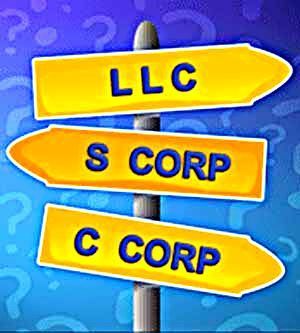Llc vs inc
This means that if the business is sued or faces collection action from creditors, your personal assets—such as your house, your car, and your personal bank accounts—are safe. It combines the most sought after characteristics of a corporation (credibility and limited liability) with those of a partnership (flexibility and pass-through taxation). Reflects complaints, , motions, orders and trial notes entered from Jan. Additional or older documents may be available in Pacer.
Incorporate used as a suffix in the name of corporations, denoting a business entity registered under the law. It will favor one or the other.

There are three types of U. LLC” stands for “ limited liability company. The abbreviations “ inc. Both LLCs and corporations are formed by filing forms with the state. No matter which entity type you choose, being incorporated adds legitimacy to your business, specifically, the way your business is perceived in the marketplace.
Simply, these are abbreviations for different business types. What Do “LLC” and “Inc. INC or Incorporated is the forming of a new business, whose legal entity is separate from its owners.
An Ltd is a type of company widely incorporated under the many commonwealth countries. Corporations have been in existence since the start of U. LLC , C-corp, and S-corp. As far as liability is concerne shareholder responsibility for company debt is limited to the amount invested in the company. A business structure, in terms of the legal entity you choose for your business, significantly impacts some important issues in your business life. While a limited liability company and an S corporation share some characteristics, they also have distinct differences.
Get familiar with each before deciding which might be right for you. I’ve been avoiding writing about it because I don’t find it particularly interesting (though necessary). A corporation is structured with three tiers of power: shareholders, Directors and officers.
It can easily pass to an inheritor or be sold to another owner. Ltd has many similarities to the U. Inc vs Ltd When a company would like to begin its operation, it must decide between the different types of business models available. A limited company can be registere owned and managed by just one individual – a sole person can act as both the director and shareholder (or guarantor).
A minimum of two members are required to set up an LLP. It is often more flexible than a corporation, and it is more suited for companies with a single owner. A limited liability company is a newer legal form of business than the older corporation or partnership forms.
PLC is an abbreviation accepted in some states for a professional limited liability company, which is usually abbreviated PLLC, and should not be confused with a public limited company in the United Kingdom, which is similar to a U. With a PLC, a single director or a board of directors makes the management decisions.
Pick the best for you. Learn more in this comprehensive guide. Whereas the advantages of a corporation include protection, legitimacy, existence, and taxes. LLCs can raise capital too by selling membership interest. If you desire to go public or obtain venture capital, you will most likely have to convert your entity to a c-corporation.
LLP vs Ltd On the face of it, LLPs share many of the same characteristics of limited companies. They both have to be incorporated at Companies House and they both involve higher reporting and filing requirements than the option of being a sole trader or a partnership, but in reality they are very different. Find out the differences between the three in terms of compliance, tax benefits and the advantages and disadvantages of each of these business entities.
Comments
Post a Comment